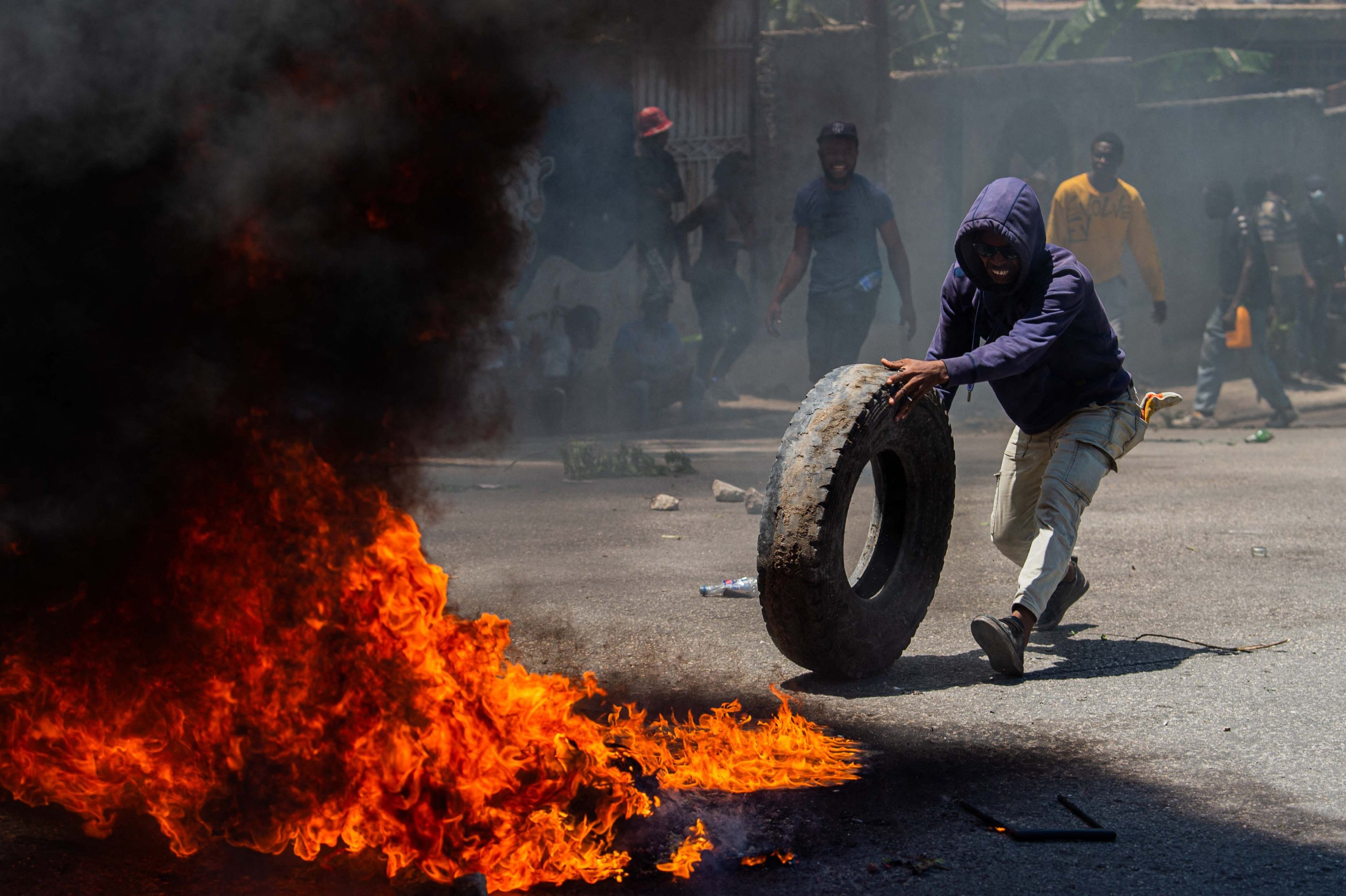© Turkuvaz Haberleşme ve Yayıncılık 2026
Haiti is grappling with an unprecedented food crisis, as a new report warns that more than half the population will face severe hunger through June.
The crisis is fueled by escalating gang violence and a worsening economic collapse, pushing the number of those affected to 5.7 million – an increase of more than 300,000 since last year.
The Integrated Food Security Phase Classification, a multi-partner U.N. initiative, warned that 8,400 individuals living in makeshift shelters are at risk of starvation.
Among them is 52-year-old Jackie Jean-Jacques, whose family has endured unimaginable hardships.
His home was destroyed by gang violence, forcing them to live in overcrowded conditions for over a year.

Jean-Jacques, a former bus driver, can no longer afford to operate his vehicle due to fuel costs and the constant threat of gang attacks.
His wife, who sells small items like plastic cups and lunch boxes, struggles to make ends meet. "This is not enough to feed us,” he said, adding that some days his children survive on sugar water and bread.
The U.S. government’s decision in February to cut 90% of USAID foreign aid contracts has exacerbated the situation.
Aid, which had been a lifeline for Haitians, began dwindling significantly after that move. "Since March 2025, funding has no longer been guaranteed,” the report revealed. For months, nearly 977,000 Haitians received humanitarian food aid, but rations were slashed by up to 50%.
UNICEF has raised alarm over the staggering number of children affected, with an estimated 2.85 million – about one-quarter of Haiti’s child population – facing high levels of food insecurity.
The agency, facing a 70% funding shortfall, has managed to assist just 4% of the 129,000 children in need of life-saving treatment for severe acute malnutrition.
Meanwhile, the U.N. World Food Program urgently requires $53.7 million to sustain its operations in Haiti over the next six months.
In 2014, only 2% of Haiti’s population faced food insecurity.
The situation has worsened dramatically, with gang violence and the aftereffects of Hurricane Matthew in 2016 destroying crops and livelihoods. By 2018, more than 386,000 Haitians were severely hungry, a number that has now skyrocketed.
"This is a very alarming crisis,” said Martin Dickler, Haiti director for the nonprofit CARE. "Haiti is one of the worst-hit countries in the world when it comes to food insecurity." The rising hunger coincides with soaring inflation, which has exceeded 30%, further straining families who cannot afford basic necessities.
Women, particularly single mothers like Jean Rose-Bertha, are bearing the brunt of the crisis.
Rose-Bertha and her two sons have lived in a shelter for nearly a year after being displaced by gang violence. "I can barely feed them. I sometimes do things I’m not supposed to do," she said, resorting to prostitution to survive.
Dickler added that women and girls are disproportionately affected, often eating last and least, and are left to navigate the daily struggles of survival amid the crisis.
